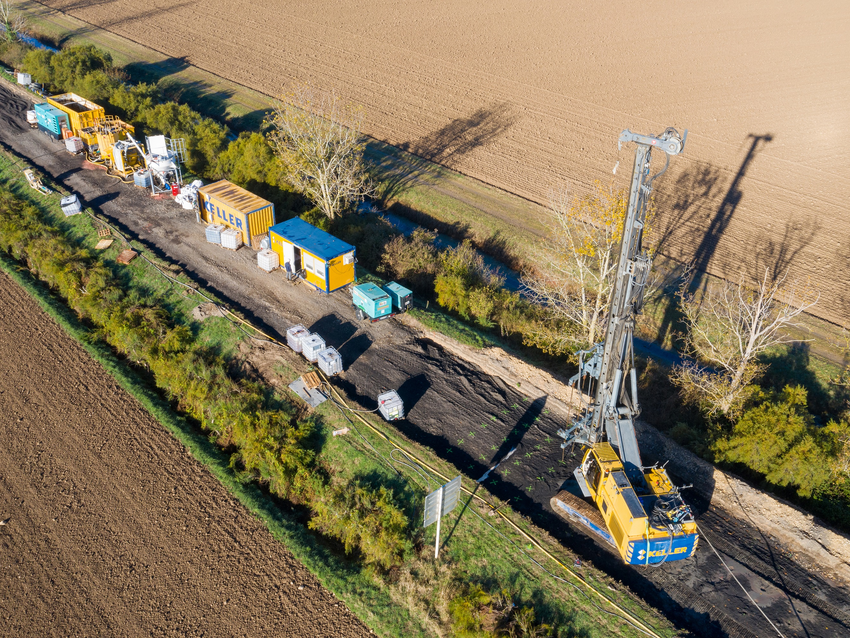A treatment developed by Keller in the US to improve the stability of swelling clay soils has been trialled in France. If successful, it could open up a major new market in the country – and tackle a growing problem.

Clay soils that swell and shrink due to moisture are a major cause of structural foundation damage. Although watertight membranes, drainage and the removal of nearby vegetation can provide initial protection, more drastic underpinning methods are often needed.
One common answer to the problem is micropiling, but a less well-known and potentially cheaper alternative involves injecting soils with a potassium and ammonium ion solution. This reacts with the clay, modifying its behaviour and making it less sensitive to swelling.
An innovative disruptor
The process was developed by Keller in the US more than 30 years ago, but isn’t widely used outside of North America. That could soon change. Keller has patented and branded the technology as RemediaClay® for the European market and recently carried out the first trial on the continent.
This trial, organised by Cerema, the French government agency responsible for urban planning, involved using RemdiaClay® on two 100m stretches of a small road.
“Historically, the clay remediation market isn’t one we’ve been active in due to the high number of small competitors in micropiling,” says Serge Lambert, Head of the Technical Department for Keller France. “But as climate change increasingly affects clays, causing more problems in roads and structures, it’s becoming a more important issue in France. We believe that RemediaClay® could be a disruptor for us in a market dominated by micropiling and soil substitution.”
Sharing knowledge across the globe
To prepare for the trial, the team turned to colleagues in the US for help. Benoit Paineau, Large Project Sales Director, travelled to Fort Worth, Texas, to visit a job site using the process, while Roy Doumet, Assistant Project Manager at the Keller Dallas branch was able to provide advice on batching the solution, and driving the rods into the soils.
After passing rigorous safety and environmental tests to satisfy European regulators, Keller France had just a short timeframe to prepare for the trial itself.
“It was a real challenge, but with US support and the help of our yard, we managed to develop the technique and prepare our equipment – adapting a multipurpose Liebherr LRB 125 rig with the right frame and device to drive the three rods into the ground simultaneously,” says Olivier Weinsanto, Site Manager.
Promoting the benefits
Although the trial ran smoothly, the results won’t be known for at least a year. However, Serge is hoping that if they’re positive, they’ll pave the way for the wider introduction of RemediaClay®, creating a competitive advantage for Keller France.
In the meantime, Keller is scheduled to take part in a second road trial with RemediaClay® in another region of France, and also aims to start promoting the benefits within the construction industry. “It will take a while to fully develop this technology for France, but this trial is an important first step,” he says.
Photo credit: C.REBIERE – Balloide-Photo Bayonne